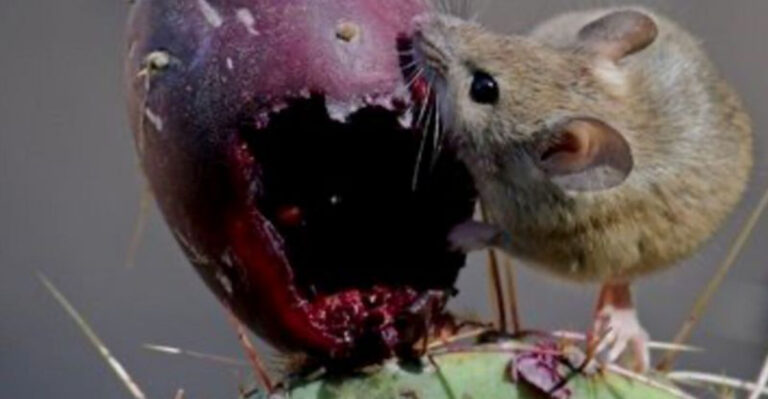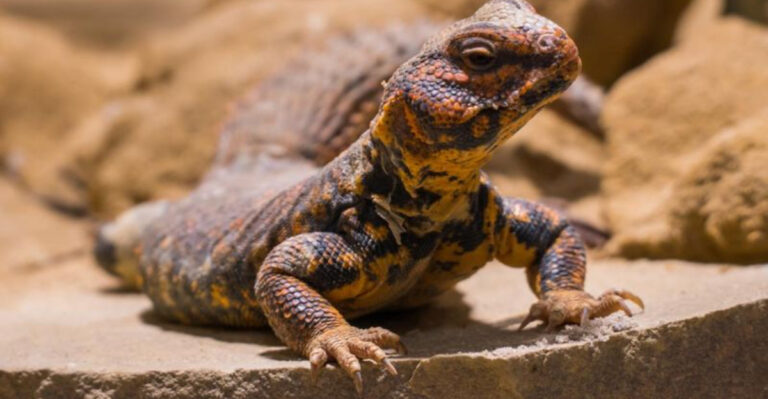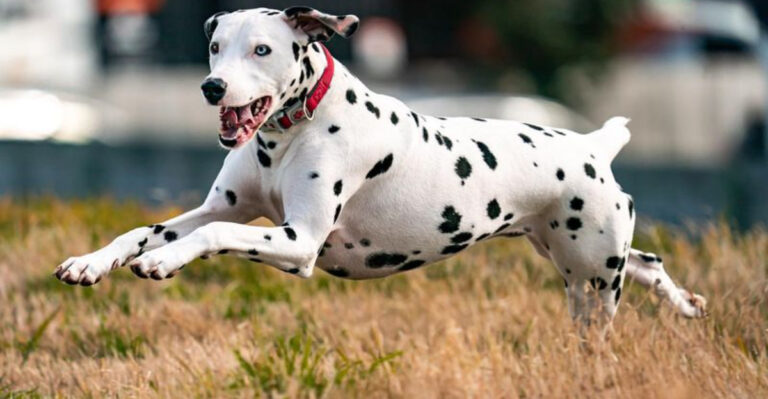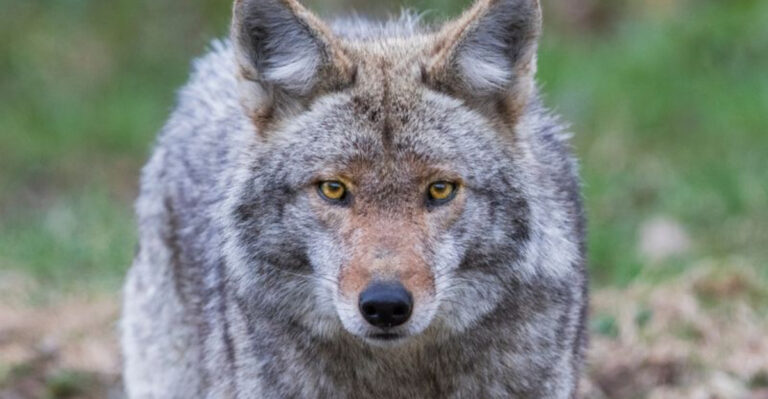20 Foods That Are A Big No-No For Your Cat
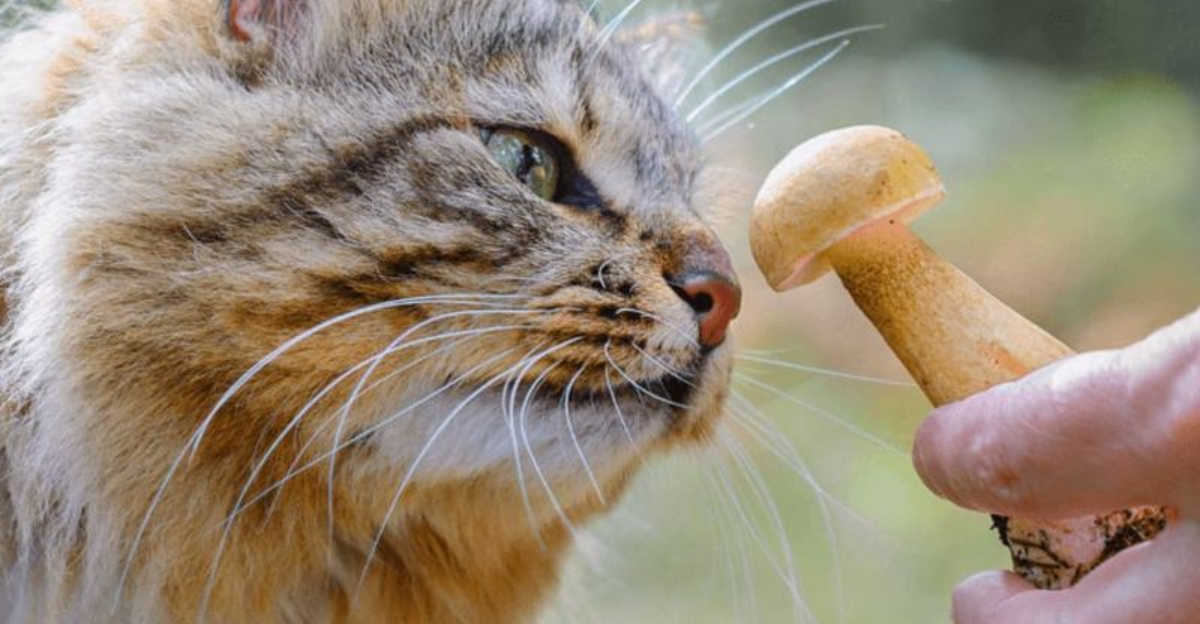
We all love to spoil our cats, but some “treats” can do more harm than good. Believe it or not, everyday human foods can be downright dangerous for your feline friend.
Here’s a list of foods your cat should never snack on—because a happy cat is a healthy cat!
1. Rhubarb Leaves
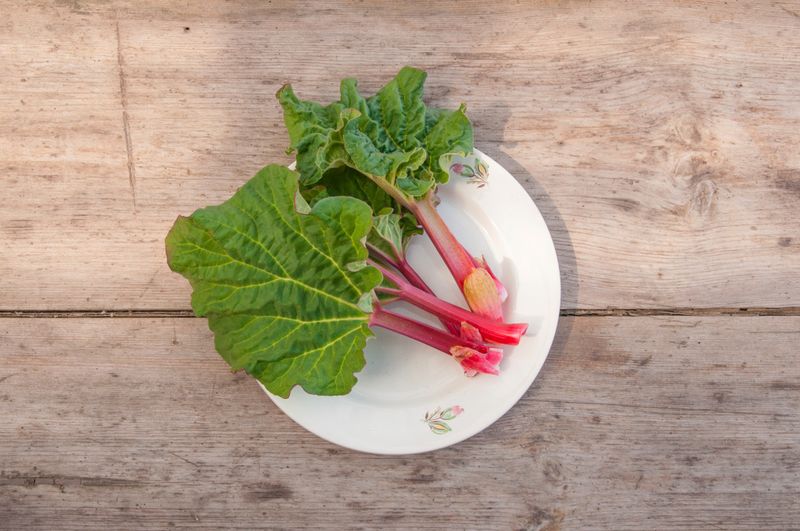
Rhubarb leaves contain oxalate crystals, which are toxic to cats.
If your cat nibbles on them, it might experience symptoms like salivation, tremors, or even kidney failure.
You may have rhubarb in your garden, and while the stalks are safe for humans, the leaves are a hidden danger for pets.
Ensure your garden is secure or monitor your cat closely when outside. If you suspect your cat has ingested rhubarb leaves, contact your vet immediately.
Keep rhubarb out of your cat’s reach by using barriers or planting in raised beds, ensuring a safe environment for your pet.
2. Tuna In Excess
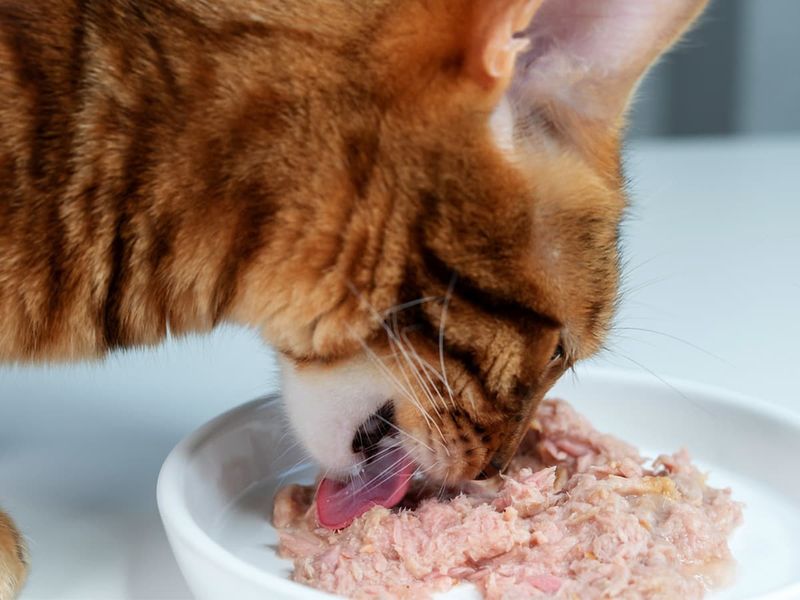
Cats love tuna, but too much of it can lead to malnutrition. Tuna alone doesn’t provide all the essential nutrients a cat needs.
A diet heavy in tuna can cause a deficiency in vitamin E, which may result in a painful condition called steatitis.
This inflammation of fatty tissue can cause discomfort and lethargy in your feline friend. Moreover, the high mercury content in tuna poses significant health risks over time.
Mercury poisoning can lead to neurological issues, affecting balance and coordination. To ensure a balanced diet, offer tuna as an occasional treat rather than a staple.
Your cat’s health will benefit greatly from this cautious approach.
3. Chocolate
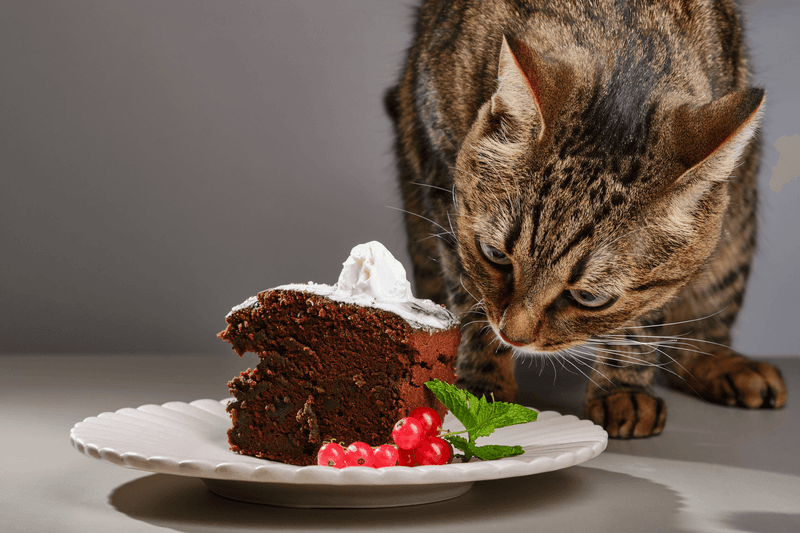
Chocolate may be a sweet indulgence for humans, but for cats, it’s a dangerous toxin.
Theobromine, a compound found in chocolate, can cause serious health issues, even in small amounts.
Dark and baking chocolate are especially hazardous due to their high theobromine content.
If a cat ingests chocolate, symptoms like vomiting, tremors, or even heart problems can occur. Quick action and a call to the vet are essential.
To keep your cat safe, store chocolate out of reach and make sure everyone in the household knows the risks.
Instead, offer cat-safe treats that satisfy their cravings without the danger.
4. Onions

Onions, in any form—raw, cooked, or powdered—are toxic to cats. They contain compounds that can destroy red blood cells, leading to dangerous anemia.
Even small amounts, especially over time, can cause serious health problems. Signs of onion toxicity include lethargy, weakness, and loss of appetite—if you notice these, call your vet immediately.
Keep onions, along with garlic and chives, far from your cat’s reach to avoid accidental ingestion.
For a safer flavor boost, stick to cat-friendly herbs that won’t harm their health. A little kitchen aareness goes a long way in keeping your feline friend happy and safe!
5. Garlic
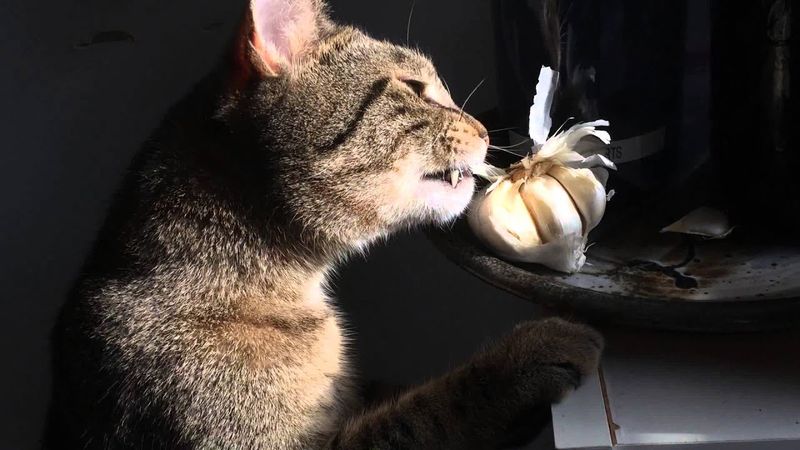
Garlic may add flavor to human meals, but for cats, it’s a dangerous toxin.
Even in tiny amounts, garlic can destroy red blood cells and lead to life-threatening anemia.
Symptoms of garlic poisoning include vomiting, difficulty breathing, and dark-colored urine. If your cat ingests garlic, contact your vet immediately—early treatment is key.
Avoid giving your cat table scraps, especially those seasoned with garlic or other toxic ingredients.
Stick to cat-safe treats and ensure everyone in your home knows garlic is off-limits.
A little awareness can go a long way in keeping your feline friend happy and healthy!
6. Alcohol
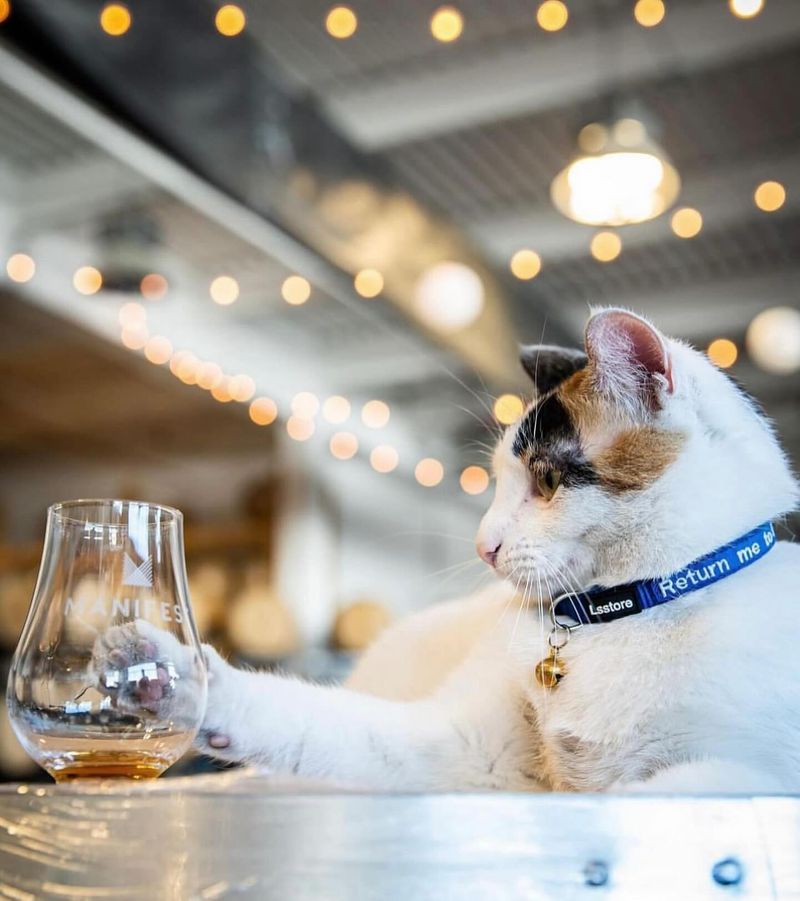
Alcohol is highly toxic to cats, even in tiny amounts. A small sip can cause vomiting, confusion, and even respiratory distress.
Unlike humans, cats can’t process alcohol, making them extremely vulnerable to liver and brain damage.
If ingestion occurs, immediate vet care is critical to prevent serious complications.
Keep alcoholic drinks out of reach and clean up spills quickly to avoid accidental exposure.
At gatherings, remind guests not to share their drinks with your feline friend.
Fresh water and cat-safe treats are much safer ways to let your cat “join” the celebration!
7. Caffeine
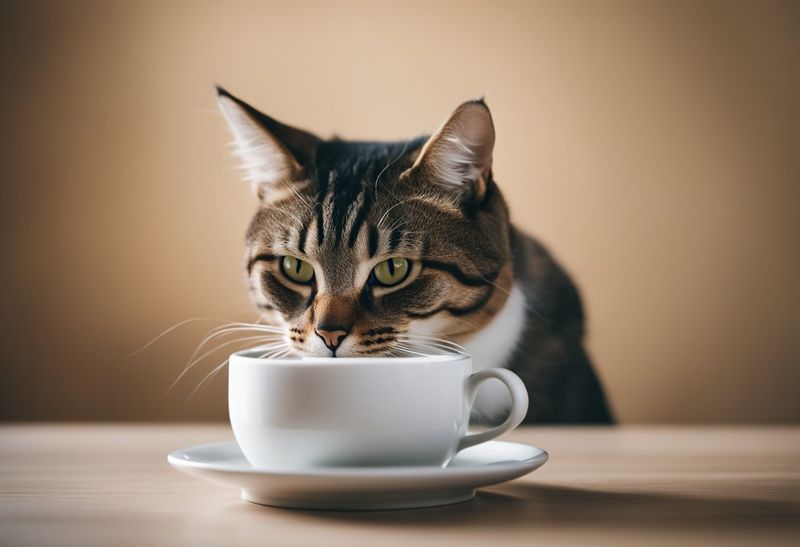
Caffeine might give you an energy boost, but for cats, it’s a dangerous stimulant. Found in coffee, tea, and sodas, even small amounts can cause serious health issues.
Signs of caffeine poisoning include restlessness, rapid breathing, and a racing heart.
Since cats are far more sensitive to caffeine than humans, ingestion requires immediate veterinary care.
Keep all caffeinated drinks and foods well out of reach to prevent accidental exposure.
Instead, offer fresh water or cat-safe herbal teas for a fun, healthy bonding moment.
With their curious nature, cats can easily tip over a cup—so staying alert is key to keeping them safe!
8. Xylitol (Found In Sugar-Free Gum And Candy)
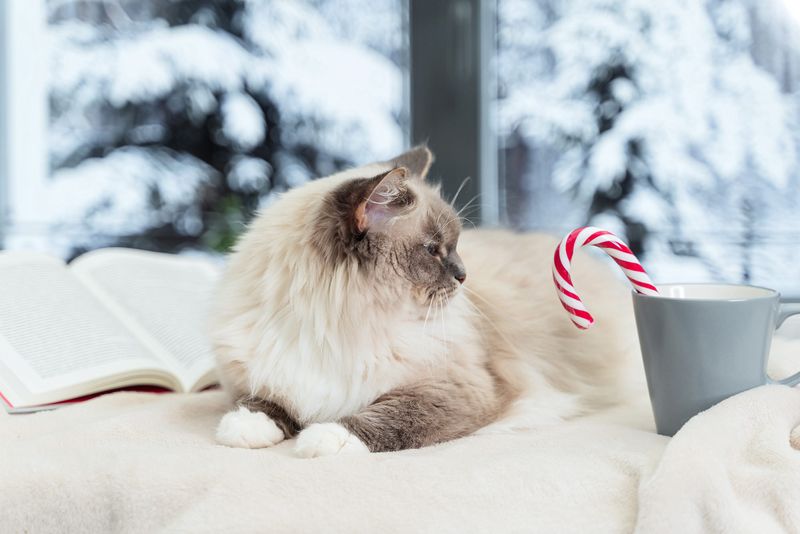
Xylitol, a common sugar substitute, is extremely toxic to cats—even in tiny amounts. It triggers a rapid insulin surge, leading to dangerous hypoglycemia within minutes.
Symptoms include lethargy, loss of coordination, and seizures, and in severe cases, it can cause liver failure. If your cat ingests xylitol, immediate veterinary care is crucial.
Keep sugar-free products like gum, candy, and some peanut butters well out of reach.
Make sure family and guests know about this hidden danger to prevent accidental exposure.
A little caution goes a long way in keeping your feline friend safe and healthy!
9. Raw Dough (Yeast)
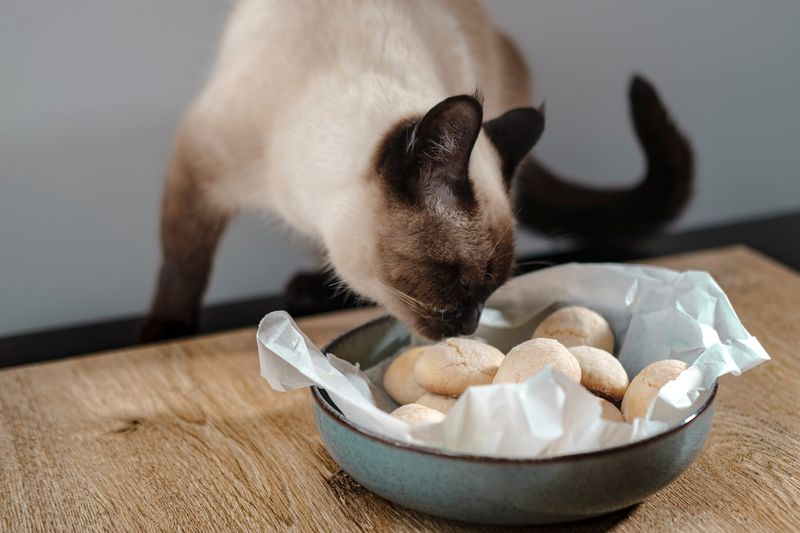
Raw dough with yeast is a serious hazard for cats, as it expands in the stomach, causing painful bloating.
Even worse, the fermentation process produces alcohol, leading to potential poisoning.
A small bite can quickly turn into a medical emergency, so if your cat ingests dough, call your vet immediately. Swift action can prevent serious complications like stomach distension or toxic reactions.
Store raw dough securely and make sure everyone in the household knows to keep it out of reach.
For curious kitties, dough-like toys can be a safe and fun alternative to satisfy their playful instincts!
10. Grapes

Grapes may be a nutritious snack for humans, but for cats, they can be dangerously toxic.
Even a small amount has the potential to cause kidney failure, though the exact reason remains unknown.
Signs of grape toxicity include vomiting, diarrhea, and unusual lethargy—if you notice these, contact your vet immediately.
Early intervention is crucial to prevent serious complications.
Always keep grapes and raisins well out of reach, and make sure everyone in the household knows the risks.
For a safer treat, opt for cat-friendly fruits and veggies that won’t put your feline’s health in danger!
11. Avocado
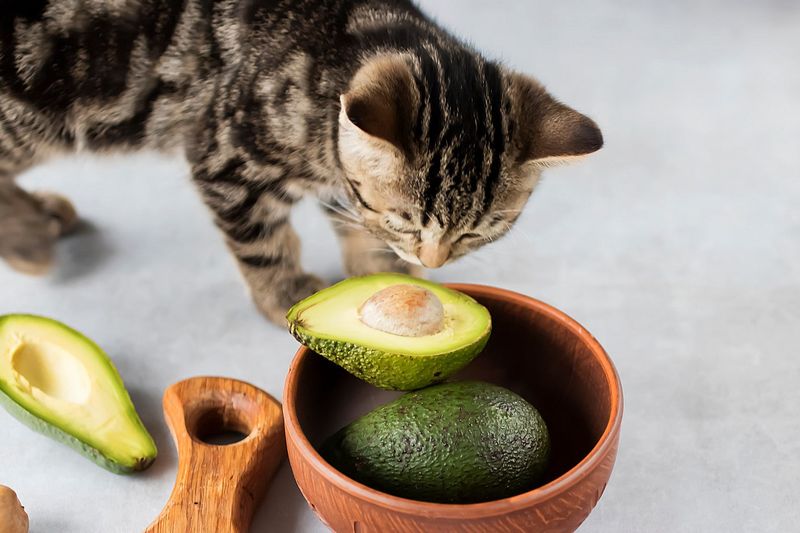
Avocados may be a superfood for humans, but for cats, they come with risks. They contain persin, a toxin that can cause vomiting and diarrhea in felines.
Even if some cats seem unaffected, the high-fat content can lead to pancreatitis with repeated consumption.
Signs of avocado toxicity include stomach upset and breathing difficulties—if ingested, call your vet immediately.
Keep avocados and avocado-based foods out of reach, and make sure everyone at home knows they’re unsafe for cats.
For a safer treat, stick to cat-friendly fruits and veggies that won’t put your feline at risk!
12. Fatty Foods
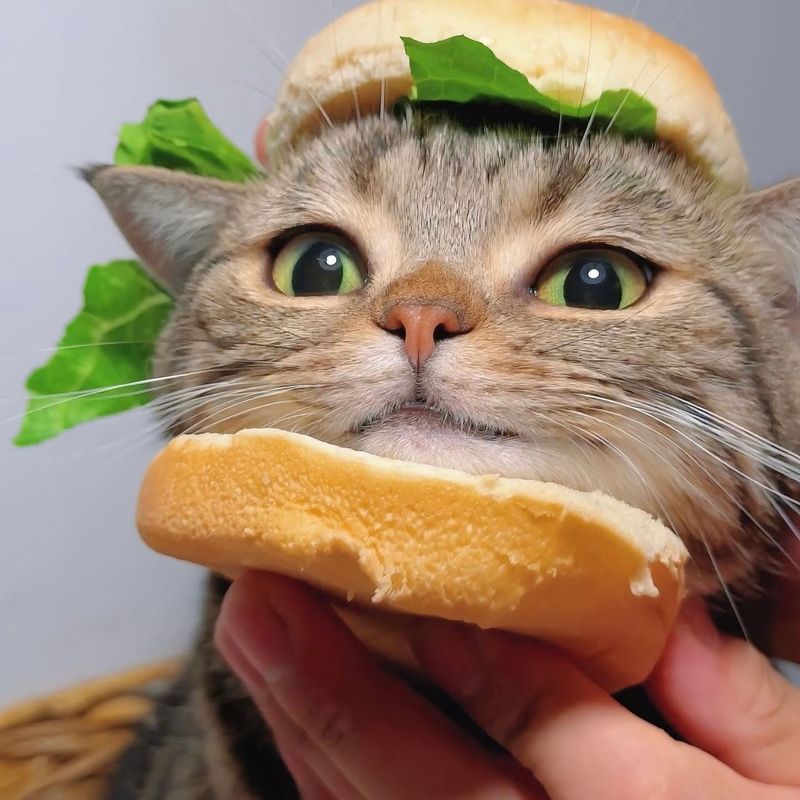
Fatty foods might be tasty to us, but they’re risky business for cats. Too much fat can lead to obesity and even pancreatitis—a painful, serious condition.
Watch for signs like vomiting, diarrhea, or belly pain if your cat sneaks a greasy bite. If that happens, it’s time to call the vet.
Skip the table scraps and stick with balanced cat food that’s made to support their health.
A little prevention (and education at home) goes a long way in keeping your feline fit and happy!
13. Dairy Products
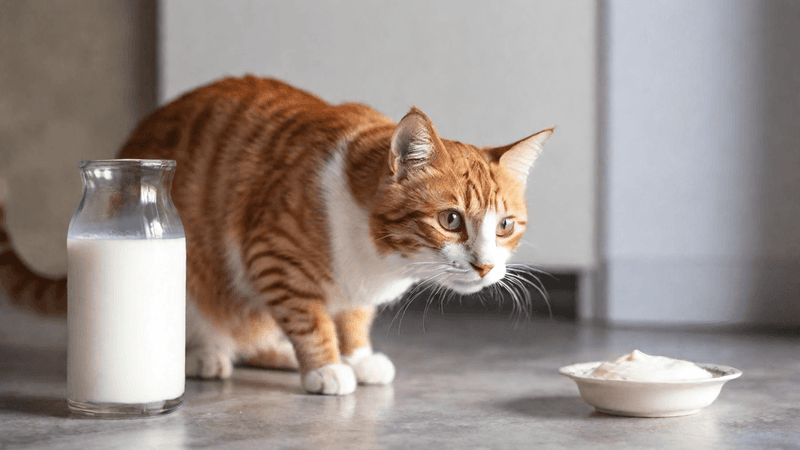
Despite the classic image of cats sipping milk, most adult felines are actually lactose intolerant. Dairy can cause digestive issues like diarrhea, gas, and upset stomach.
Even small amounts may lead to discomfort, and regular intake can throw off their nutritional balance.
If your cat loves the taste, try lactose-free cat milk made just for them.
Remind family and friends that dairy isn’t a treat—it’s a tummy ache waiting to happen.
Stick to fresh water and safe, vet-approved snacks to keep your cat feeling their best!
14. Raw Fish
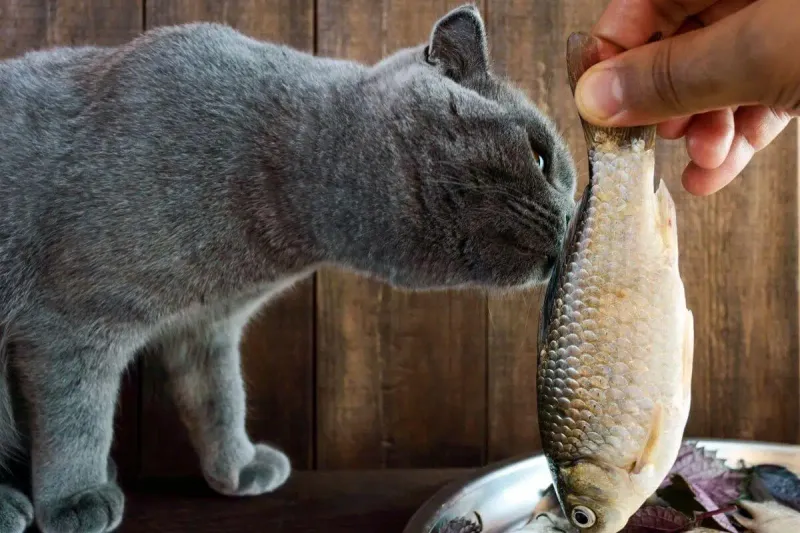
Raw fish might seem like a natural treat for cats, but it can actually be harmful. It contains enzymes that destroy thiamine, a vital B vitamin, leading to serious neurological issues.
Raw fish can also carry bacteria and parasites that cause food poisoning. If your cat shows signs like vomiting or lethargy after eating raw fish, contact your vet right away.
To keep things safe, opt for cooked, boneless fish or stick with nutritionally balanced cat foods.
Your feline can still enjoy the flavor of fish—just without the hidden health risks!
15. Ham
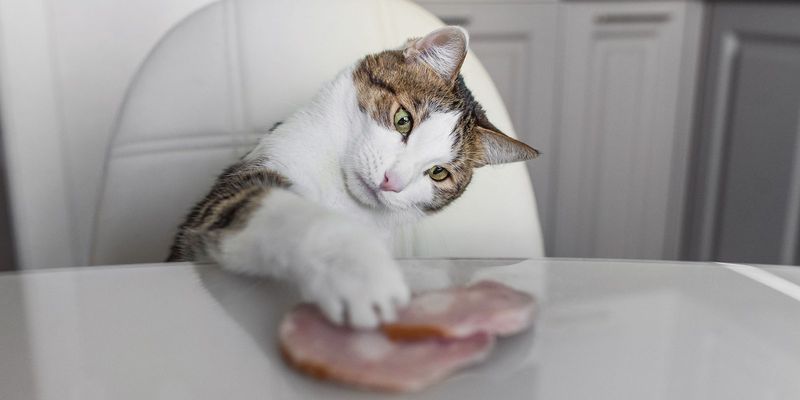
Ham might be a savory snack for humans, but it’s not a healthy choice for cats.
Its high salt and fat content can lead to dehydration, digestive issues, and even long-term problems like obesity or heart disease.
Just a small bite here and there may not cause harm, but regular indulgence can be risky.
Signs of too much salt include vomiting, diarrhea, and sluggishness—if you notice these, call your vet right away.
Skip the ham and stick to cat-friendly treats made for their unique nutritional needs.
Let family and guests know not to sneak your cat table scraps—healthier options keep your kitty happy and safe!
16. Macadamia Nuts
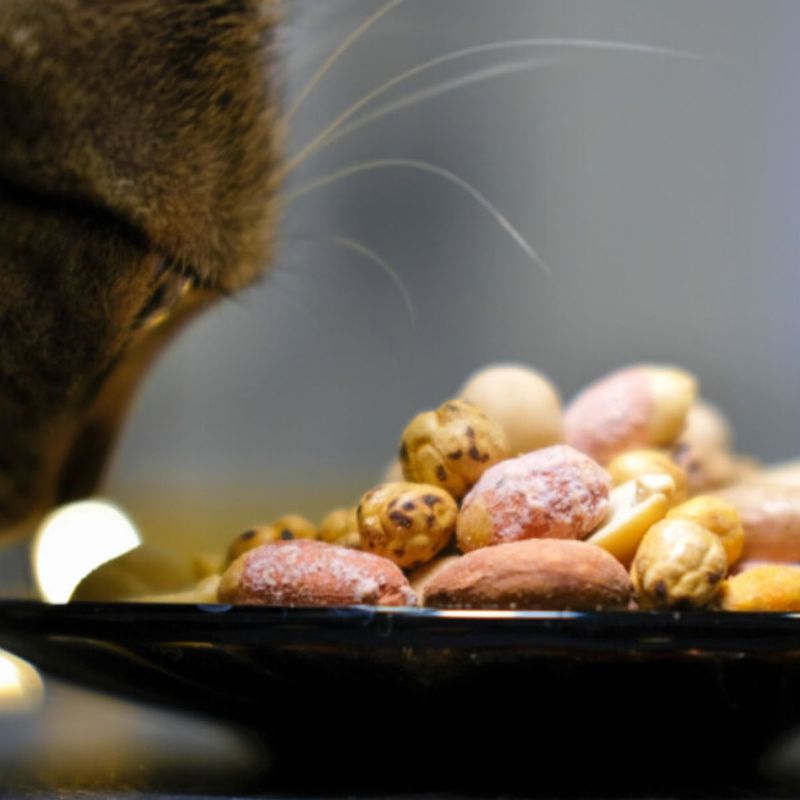
Macadamia nuts may be tasty for humans, but they’re toxic to cats—even in small amounts.
Ingestion can lead to vomiting, tremors, and an unsafe rise in body temperature.
The exact reason for their toxicity remains a mystery, but the risks are very real. If your cat eats even a few, contact your vet right away to ensure proper care.
Keep macadamia nuts securely stored and out of reach, and let everyone in the household know they’re off-limits.
Instead, treat your feline to safe, vet-approved snacks that satisfy their curiosity without the danger.
17. Mushrooms
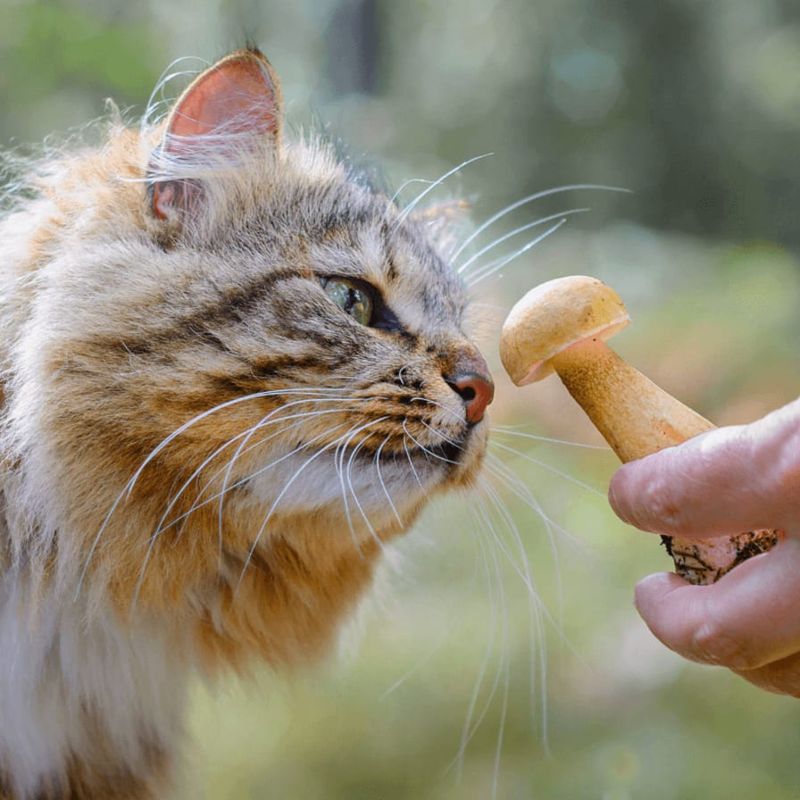
Mushrooms—especially wild ones—can be highly toxic to cats, causing anything from vomiting to serious neurological issues.
The tricky part? It’s nearly impossible to tell the safe ones from the dangerous nes at a glance.
If your cat eats any mushrooms, contact your vet immediately, as quick action is key to proper treatment.
Keep mushrooms off your cat’s menu and make sure your yard is clear of wild varieties.
Let your family know mushrooms aren’t a safe snack for your feline friend—better to be safe than sorry!
18. Spicy Food
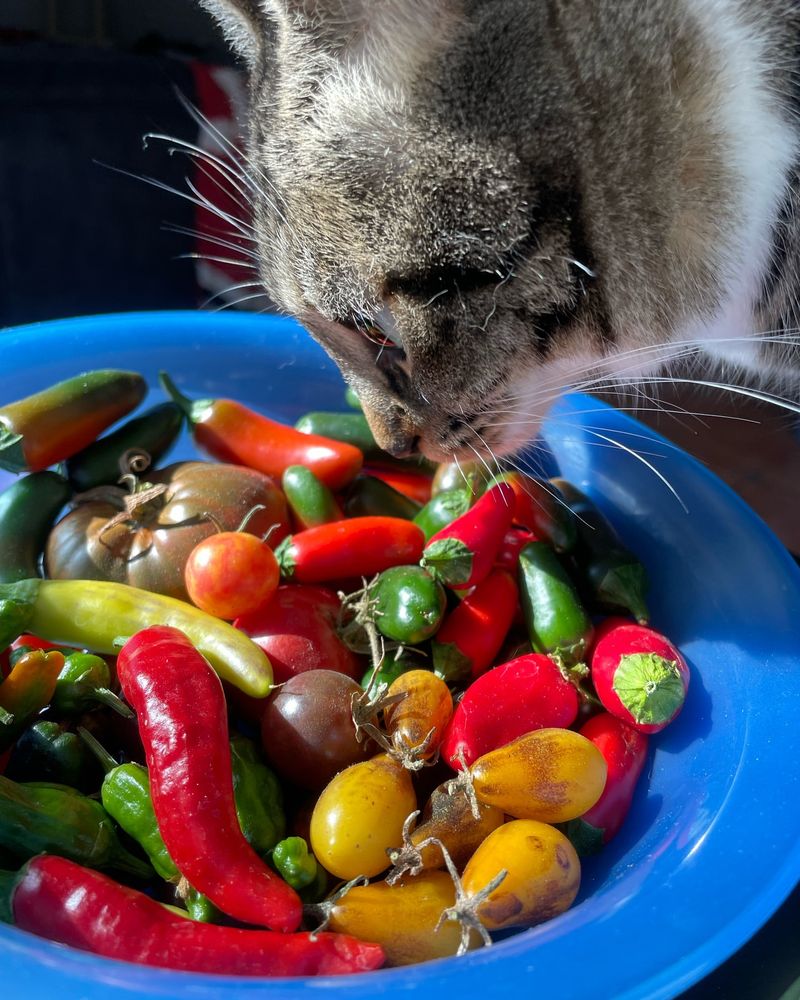
Spicy foods might spice up your dinner, but they’re a no-go for cats. Ingredients like chili peppers contain capsaicin, which can upset your cat’s stomach and cause vomiting or diarrhea.
Cats don’t even have the taste buds for spice—they just get the burn without the flavor. If your kitty sneaks a bite, offer fresh water and check in with your vet.
Keep spicy dishes out of paw’s reach, and opt for bland, cat-safe treats instead.
It’s the tastier (and safer) way to keep your curious feline satisfied!
19. Salt
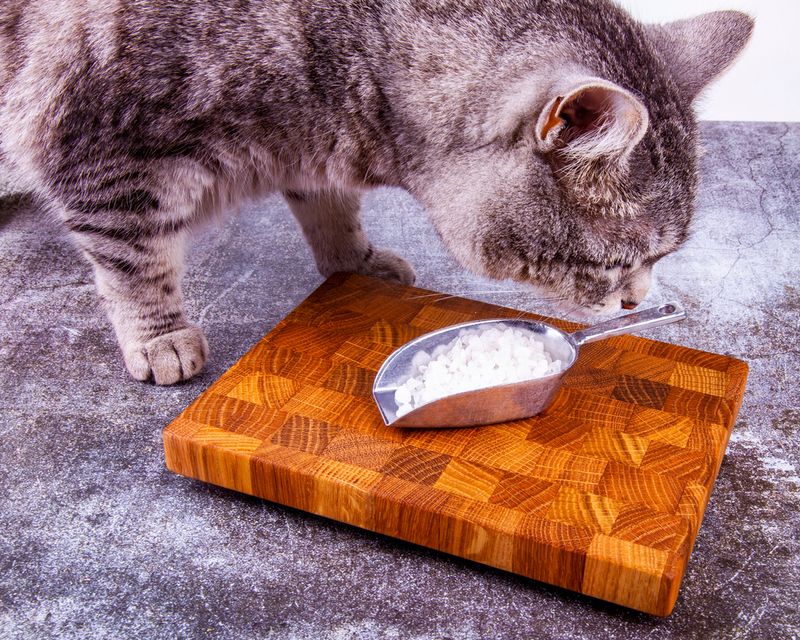
Salt might be a staple in your kitchen, but it’s not safe for your cat. Too much can cause dehydration, electrolyte imbalances, and even sodium poisoning.
Signs of salt toxicity include vomiting, diarrhea, and sluggish behavior—if you notice these, call your vet right away.
Keep salty snacks and table seasonings out of reach to prevent accidental munching.
Make sure everyone at home knows not to share salty foods with your furry friend.
Stick to a balanced, low-sodium diet to keep your cat feeling their best!
20. Ice Cream
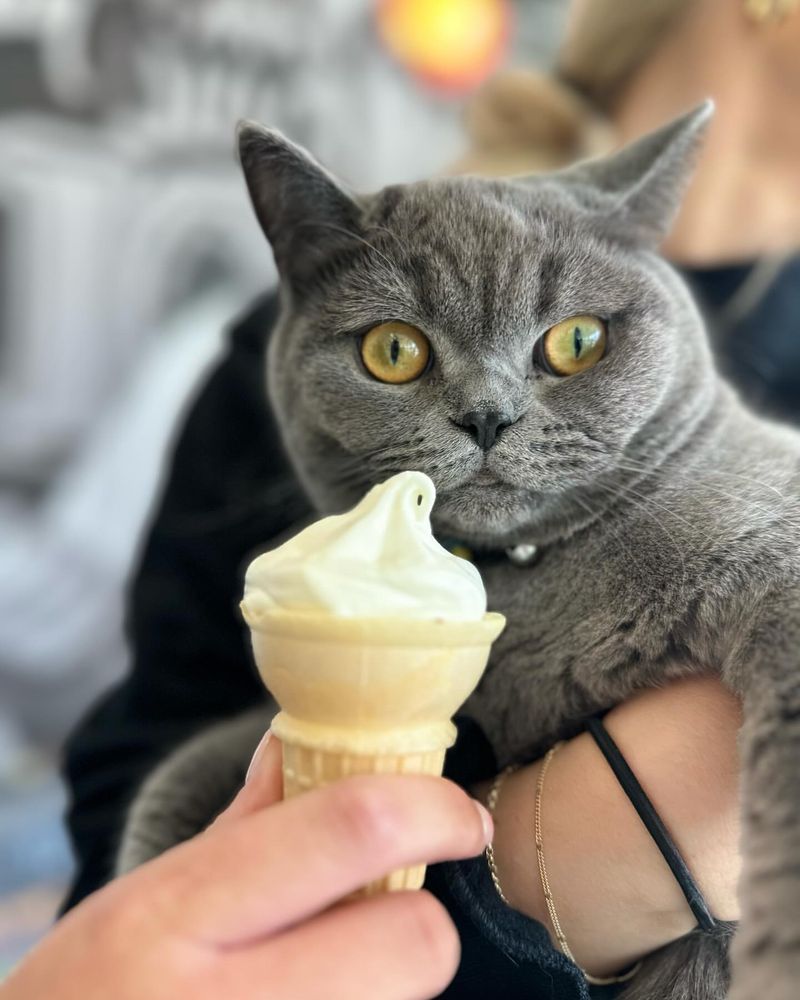
Ice cream may look like a fun treat to share, but it’s not meant for cats. Most felines are lactose intolerant, and all that sugar can lead to weight gain and dental trouble.
Even a small lick might cause an upset stomach or diarrhea. Regular indulgence can throw off their nutrition and lead to bigger health issues.
Instead, treat your kitty to cat-safe frozen snacks made just for them.
Let your family know to skip the ice cream sharing—your cat will thank you later with purrs, not tummy troubles!

